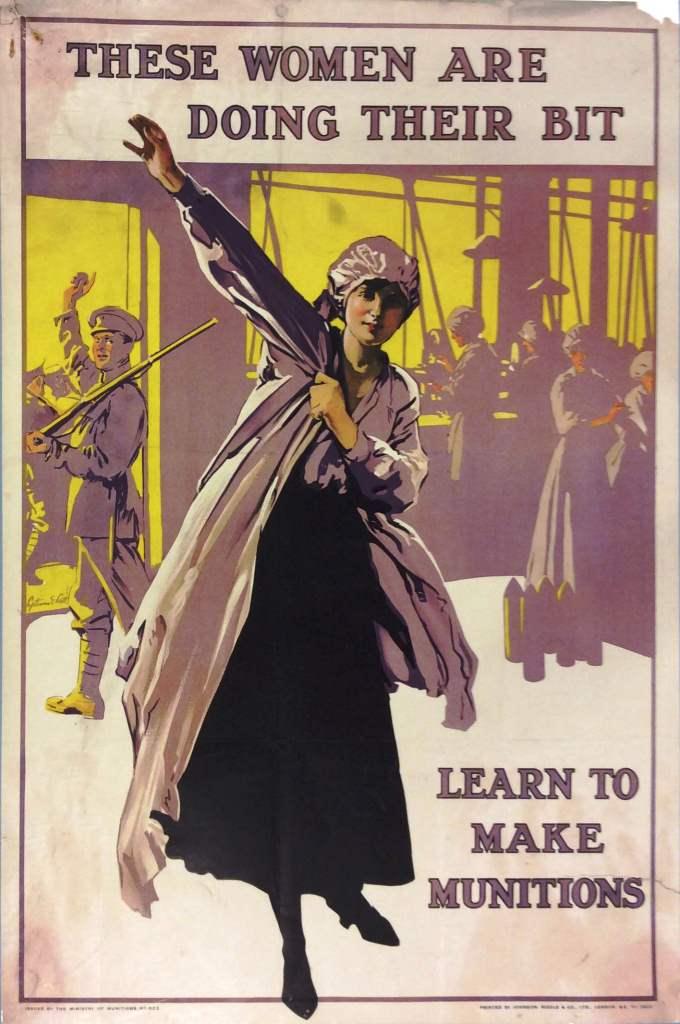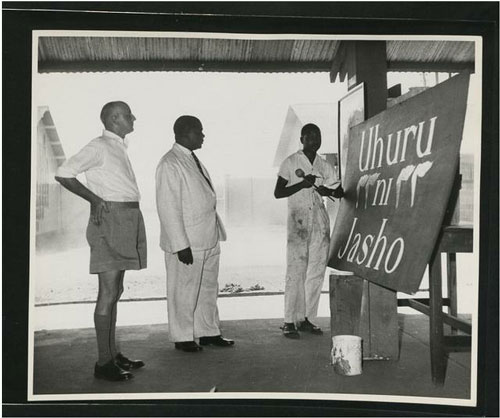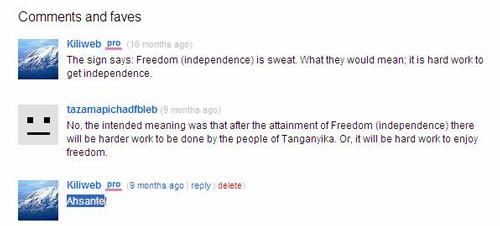This year The National Archives’ annual Diversity Week will run from Monday 25 to Saturday 30 January. This week is a chance to showcase the work we do all year round to tease out diverse stories or ‘hidden’ histories from our records and share them with as wide an audience as possible.

Kanari women of Dikwa Emirate (catalogue reference: CO 1069/ 24/13)
With 12 million records spanning 1000 years there is undoubtedly a wealth of diversity to be found in The National Archives collections – but the nature of this type of history always provokes interesting debates and discussions.
Diverse Histories months – still necessary?

Poster showing female munitions workers: ‘These Women Are Doing Their Bit. Learn To Make Munitions’. (reference: EXT 1/315/17)
This always seems a topic of hot debate every time LGBT History Month or Black History Month rolls around. Do history months confine an already marginalised history to one month a year, or do they promote for a short period a history that is developing all year round on a national stage?
Women’s History Month is linked to the radical history of International Women’s Day, and in the UK LGBT History Month occurs in February to coincide with the abolition of Section 28 in 2003. With history months often rooted in radical origins, are the histories of the months themselves important as a reflection of past struggles?
With an increasingly intersectional approach to diverse histories can history months be exclusionary of intersectional histories? What about representation of black women or the representation of queer women? Do we need to make a concerted effort to include these voices?
Perhaps a relatively new field of marginalised history, such as disability history, is more justified in having a history month to provide the historical field the attention it is due. Diverse history months throw up many potential topics of discussion on which we would love to hear your thoughts.
Collective experience, not just iconic figures
History months have been criticised for iconising the same individuals, rather than reflecting the experiences of an average person in the past. Black History Month last year brought with it a debate about the nature of history months. David Olusoga wrote that:
‘the problem is that biography, especially heroic biography, can at times displace and obscure history rather than explain or deepen it. This is because the life stories of the men and women who make up the pantheon of black heroes are not wide enough, even when viewed together, to encompass the global scale and variety of black history.’
Potentially this is an argument that could be applied to all voices outside of mainstream history.
Do diverse histories have a responsibility to reflect real people’s experiences and not just prominent individuals? How can we ensure we avoid mentioning the same iconic historical figures time and time again, which potentially reinforces existing narrow views of the past?
Mary Seacole is a great historical hero – but what was the average experience of a black woman in Victorian England? Oscar Wilde is an understandable icon – but how was the average gay person treated before and after the Wilde trials?
How do we address the challenge of finding and promoting the experience of an ‘ordinary’ person in the past?
How can we raise awareness of diverse histories?
The brilliant thing about an archive is the history remains stored and is undeniably present – but how do we get this message out to people? ‘Hidden histories’ is not an accurate term when this material is accessible on our catalogues, expert advice is available and research guidance offers methods of searching.
There are many ways of promoting diverse histories – be it outreach work with community groups, education visits, public events or cataloguing project to enhance access. What new methods can we use to reach out with this exciting history?
New audiences can be engaged through methods as diverse as screen printing workshops on women’s history, creative writing workshops on LGBT related archival material and even spoken word – there is loads of potential!
How can we use social media?
Increasingly social media and new forms of technology are able to help us reach out in new ways. For example, our Outreach Caribbean through a Lens project used Flickr to try and engage people with images from our colonial office records, with the aim of trying to create discussions and comments.

Photograph from the Tanganyika collection (catalogue reference: CO 1069/157/79)

Comments by Flickr users on image CO 1069/157/79
How can we utilise social media to reach new audiences? Does the nature of social media mean removing vital context from our records?
There is huge potential for social media to remove some barriers and open up collections to wider audiences, many of whom may never have visited, or know that an archive was relevant to them. How can we best utilise this expanding technology? Does social media help to give an equal voice to all? Does it act as an equaliser, allowing both the big, famous stories and those more hidden stories to be told in equal measure?
Join in
We kicked the week off with a Twitter debate, using the hashtag #ArchiveDiversity, to discuss the challenges and opportunities of engaging in diverse histories.
[…] http://blog.nationalarchives.gov.uk/blog/diversity-archives/ […]
I believe that the term ‘hidden histories’ is to be taken less literally than that! For me, the term encompass the variety of reasons for our skewed world history – from the lack of material in the archive through to the lack of interest in alternative accounts of history within society.
Many people feel overwhelmed when taking on a website. The initial experience should assist/facilitate surfing the material with ease. Elements could include: visual & written material. PRO know from the number of hits/searches on the website what the most popular aspects for research are. Identifying different fields of interest is difficult but this is where the passion of researchers/historians full and part time can come in. It might be possible to invite people to share an exciting story they uncovered while researching – ‘exciting’ is subjective though! Social media is of priceless value in informing people what material is there. It is quick, has a wide audience and gets a response from those who wish to avail of the possibility. It also gets people talking. Opening doors is the initial phase and social media is ideal for opening many doors.
Thanks for the comments Dominic. I completely agree social media is ideal for opening doors for peoples initial engagement with archival material.
Please join us later today between 16:00-17:00 to continue the discussion.